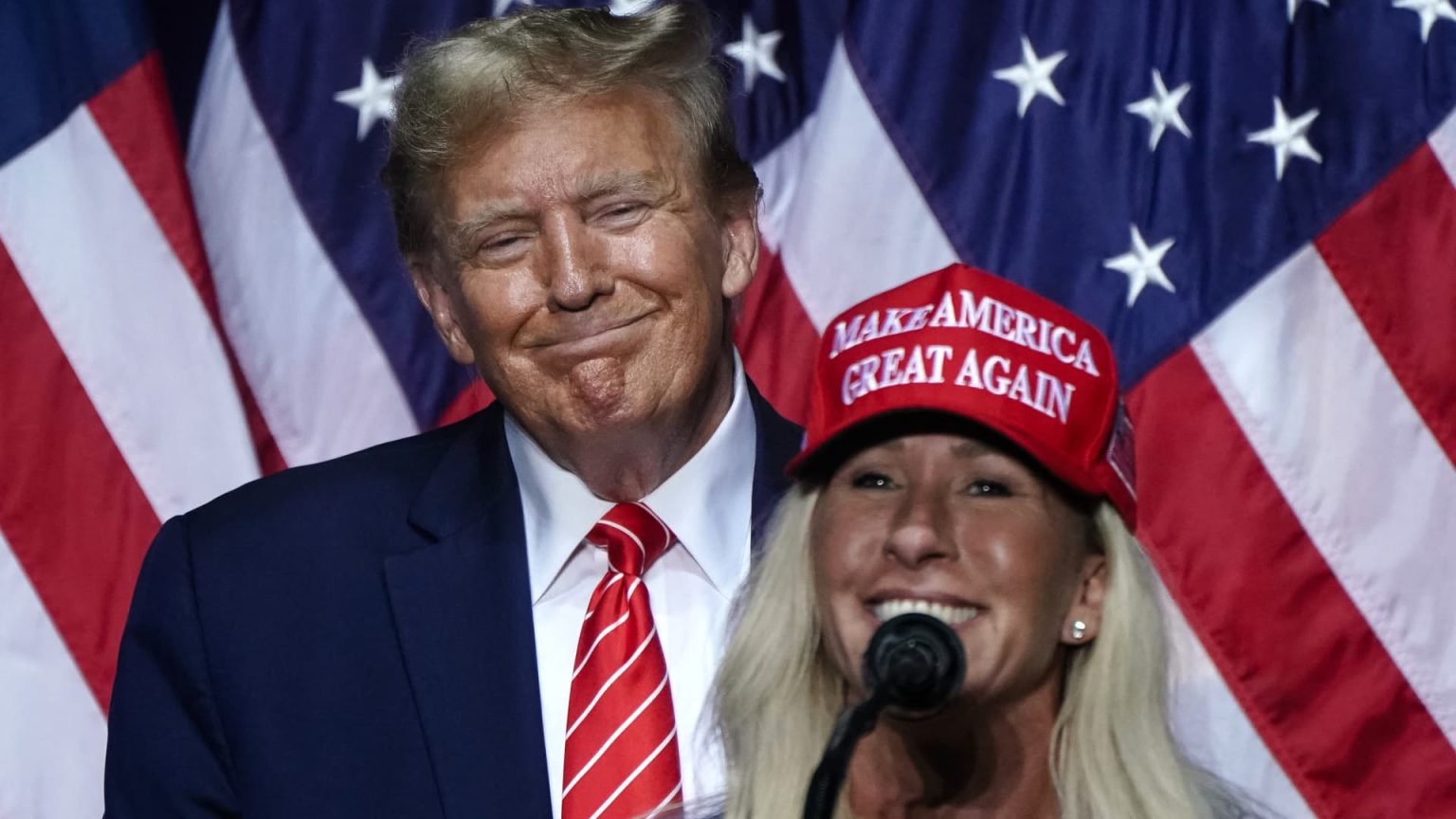A media company connected to former President Donald Trump is facing financial difficulties, with shares falling and the company’s value decreasing. Rep. Marjorie Taylor Greene, who purchased shares in the company that helped Trump’s business go public on the Nasdaq, has been tight-lipped about what happened to her stock in Digital World Acquisition Corp. The share price has dropped by at least 45% this month. Greene and another member of Congress disclosed buying shares in DWAC, with Greene purchasing stock in October 2021 shortly after the merger announcement. If she and the other congressman still hold the stock, they could have suffered significant losses with the sinking stock price.
The other congressman, Rep. Larry Bucshon, confirmed that he still owns stock in the merged media company despite the plummeting stock price. Greene’s spokesperson stated that she currently holds no stocks, but it is unclear what happened to her DWAC stock since her original purchase. Ethics lawyers have raised concerns about why Greene did not disclose the status of her stock and offered possible explanations, such as the value falling below the disclosure threshold or the stock being lost during her divorce proceedings in 2022. Some have called for Greene to clarify what happened to her stock holdings.
While members of Congress are not prohibited from trading individual stocks and investments, they are required to report any trades within 45 days under the STOCK Act. However, there have been ongoing discussions about whether lawmakers should be allowed to trade stocks while in office, with some arguing that such activities present conflicts of interest. Legislation that would bar members of Congress from trading individual stocks has yet to gain traction in Congress. The situation involving DWAC and Greene’s stock ownership highlights the potential pitfalls and ethical considerations surrounding lawmakers’ investments.
The media company, which is the parent company of Trump’s social media app, Truth Social, has seen its share price drop significantly since going public on the Nasdaq. Despite these financial challenges, Greene, Bucshon, and other shareholders have seen the value of their investments decline. The situation underscores the risks associated with investing in volatile companies and the potential for significant financial losses. As Greene and other shareholders navigate the fallout from the declining stock price, questions remain about the transparency and accountability of lawmakers’ investments and disclosures.
Ethics lawyers have pointed out that Greene’s failure to disclose the status of her DWAC stock raises concerns about transparency and accountability. If she still holds the stock, questions remain about why she did not include it in her recent financial disclosures. Greene’s spokesperson’s statement that she currently holds no stocks contradicts her previous disclosure of purchasing DWAC shares. As Greene and Bucshon navigate the fallout from the declining stock price, the situation highlights the challenges and complexities of lawmakers’ financial dealings and the need for greater transparency and oversight.
The situation involving DWAC and Greene’s stock ownership demonstrates the risks and challenges associated with investing in companies with ties to public figures and potential conflicts of interest. As lawmakers continue to face scrutiny over their investments and financial disclosures, the need for accountability and transparency becomes increasingly important. The ongoing debate about whether lawmakers should be allowed to trade individual stocks while in office raises questions about the potential for conflicts of interest and the need for stronger ethical guidelines in Congress. As Greene and Bucshon grapple with the fallout from the declining stock price, the situation serves as a reminder of the complexities and risks involved in lawmakers’ financial dealings.













